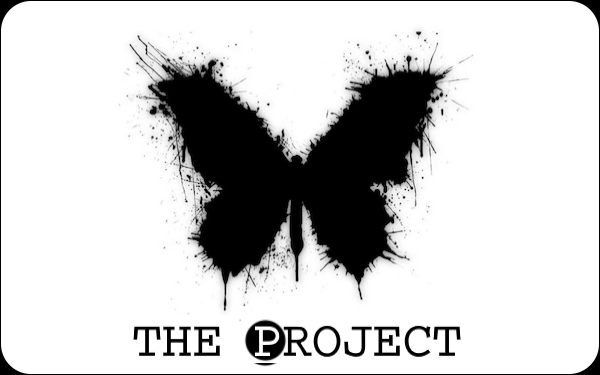
| The views and perspectives expressed (herein) are a representation of the beliefs of Mikey Brewer and contributing authors and these views are not intended to be taken seriously. The material here is absolutely hypothetical and is only meant for debate and since we are critically-thinking human beings these views are always subject to revision and change. This blog should not be used as a foundation in life decisions and there is no guarantee given regarding the accuracy of any statements within this blog... |
 Posted a Commentary by Mikey Brewer The other day, I was thinking about Lewis C. K. and how he was cancelled for masterbating in front of two women after a show, backstage... Oh dear! Even if these women were deeply offended, why did they remain until the very end? I guess to see the money shot, of course... I don't see why we're all so shocked, though. We've all enjoyed his comedy over the years, so it shouldn't be a surprise that he is actually just like his comedy in real life. In my opinion, the masterbation session alone was rather mild in comparison to the topics his humor touched upon. Since we all laughed along with him, I suppose we should all be cancelled, because what's good for the goose is good for the gander, right? |
 Posted a Quote 4/2025 What He Said... |
 FIFTY SHADES OF HYPOCROCY Posted 3/2025 by Mikey Brewer Romance novels have long been a staple in popular culture, often referred to as "mommy porn" due to their focus on emotional and intimate fantasies. But are these stories really any different from more explicit content often consumed by men, like pornography? The lines between emotional and physical desires may be more blurred than we think. Below, we'll explore how romance novels and pornography function similarly, the nature of female and male fantasies, and the societal double standards that contribute to the perception of "mommy porn being acceptable." Both romance novels and traditional pornography are designed to fulfill a similar purpose: stimulating desire. Romance novels do this through intricate storytelling and deeply developed emotional connections between characters. They often highlight love, affection, and passion, with steamy scenes woven into the narrative as a culmination of the characters' feelings. In contrast, pornography often focuses on the physical act itself, providing a more direct and visual approach to sexual arousal. But at their core, both serve as outlets for desire. Romance novels may evoke a feeling of intimacy and longing in their readers, while pornography caters more to the visual and immediate. Essentially, they both explore fantasies, but in different ways. The key difference lies in how society has chosen to perceive and judge these expressions of desire. Much of the debate centers around the claim that women's imagination is fundamentally different from men's visual desires. But is that really true? When women read romance novels, they immerse themselves in scenarios that trigger a mental response. The detailed descriptions, character development, and deep emotional connections in these novels are all crafted to stimulate a woman's mind and emotions. This mental engagement is not so different from how a man might engage visually with explicit content, finding pleasure in the images presented. For men, visual cues can trigger arousal quickly, while for many women, the emotional journey and the mental landscape set by a romance novel can be equally compelling. In both cases, the end goal is the same: a heightened state of desire and satisfaction. To claim that one is more "pure" or "valid" than the other dismisses the fact that both are simply different expressions of human sexuality. One crucial distinction often made between romance novels and traditional pornography is the element of exploitation. In pornography, concerns about the exploitation of actors and unethical production practices are valid and widespread. There are numerous cases where people in the industry have been subjected to unfair treatment, coercion, and lack of consent. This creates a moral dimension to the consumption of such content that cannot be ignored. In contrast, romance novels are works of fiction - no one is physically involved or harmed in their creation. The authors have full control over their characters and stories, and readers engage with these fantasies in the privacy of their own imaginations. For many, this makes the consumption of romance novels a less morally fraught activity, providing a way to explore desires without contributing to an industry that may have ethical issues. However, it's important to note that romance novels can still perpetuate unrealistic ideals about love, relationships, and desire, much like how pornography often portrays unrealistic depictions of sex. Both have the potential to shape expectations that may not align with reality, though their impacts differ in how they manifest in the lives of their consumers. Romance novels and traditional pornography are both outlets for human fantasy, and each serves a unique purpose in the realm of desire. The double standards applied to these forms of entertainment highlight broader societal issues regarding how male and female sexualities are perceived and judged. By understanding the similarities between them and challenging the existing stereotypes, we can move toward a more inclusive view of human desire - one where fantasies, whether visual or imaginative, are not subject to judgment but are accepted as natural expressions of human curiosity and passion. |
 Posted 2/2025 by Mikey Brewer
|
 UNVEILING THE DARK LEGACY OF MK-ULTRA Posted 1/2025 by Mikey Brewer The pursuit of power and control has often led humanity down dark and morally ambiguous paths. One such chapter in history is the clandestine project known as MK-Ultra, orchestrated by the Central Intelligence Agency (CIA) during the Cold War era. Born from the fear of ideological adversaries harnessing the power of mind control to propagate their agendas, MK-Ultra exemplifies the lengths to which governments were willing to go in the name of national security. However, beneath the guise of scientific advancement and national defense lay a harrowing tale of unethical experimentation, human rights violations, and the exploitation of vulnerable individuals. At its core, MK-Ultra was driven by the fantasy of brainwashing, a concept steeped in the desire for optimization and efficiency. Traditional methods of interrogation, such as torture, were deemed too slow and unreliable for the fast-paced demands of the Cold War landscape. The allure of a scientifically informed approach to interrogation, capable of swiftly extracting information and manipulating behavior, proved irresistible to intelligence agencies. Thus, MK-Ultra was conceived as a multi-faceted initiative encompassing research into memory wiping, mind control, and the development of so-called "truth serum" drugs. The operational scope of MK-Ultra extended far beyond the confines of ethical boundaries. Projects like "Operation Midnight Climax" in San Francisco and the experiments conducted by psychologist Donald Cameron at McGill University epitomized the depths to which the CIA was willing to descend in its quest for control. In the former, unsuspecting American men were lured into scenarios involving LSD dosing by CIA-employed sex workers, all under the guise of covert observation. Meanwhile, at McGill University, Cameron subjected patients with mental illness to a combination of drugs and electroconvulsive therapy, in a misguided attempt to erase and "repattern" their minds. The aftermath of such experiments left lasting scars on the victims, with many suffering from amnesia for years. The revelations of MK-Ultra's existence, unveiled during the mid-1970s by the Church Committee hearings, shook the public's faith in governmental institutions and sparked a re-evaluation of the ethical boundaries of scientific research. The acknowledgment that the CIA had not only engaged in covert experimentation on American citizens but also funded the torment of vulnerable individuals in Canada shattered the illusion of trust between the government and its citizens. Moreover, the legacy of MK-Ultra continues to haunt discussions surrounding interrogation techniques and the ethical responsibilities of scientists and policymakers alike. In hindsight, the tale of MK-Ultra serves as a cautionary reminder of the dangers inherent in the unchecked pursuit of power and control. |
Copyright Disclaimer






